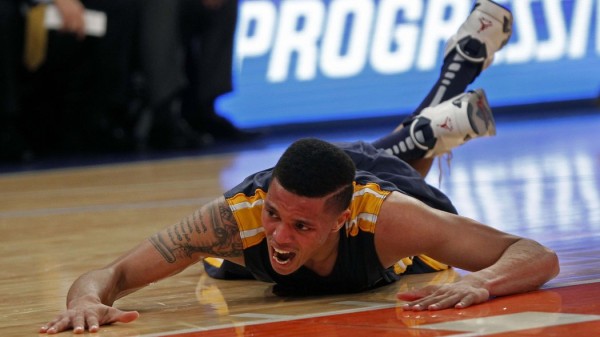Can Drexel Win the CAA Without Damion Lee?
Posted by Tommy Lemoine on December 6th, 2013After losing senior guard Chris Fouch for almost the entire season and finishing in the bottom half of its league last year, Drexel’s 2013-14 campaign seemed to be one filled with resurgent optimism, especially after a promising month of November. The Dragons nearly beat UCLA in Pauley Pavilion on college basketball’s opening night before winning three straight contests, including victories over Elon and Rutgers, to advance to the NIT Season Tip-Off semifinals in Madison Square Garden. There, Bruiser Flint’s squad jumped out to an early 27-8 lead on fourth-ranked Arizona, proving to a national audience — and perhaps itself — that it could play with anyone. But in the second half, CAA Player of the Year candidate Damion Lee went down with a torn ACL, and the outlook for Drexel this season changed in an instant. A team predicted to compete for the league title was suddenly and decidedly shorthanded.
With Lee, Frantz Massenat and Fouch, who was granted a sixth year of eligibility because of his ankle injury, the Dragons were set to have arguably the best backcourt in the conference. And while they still might, what with Massenat’s preseason all-conference stature and Fouch’s elite shooting ability, losing a player as dynamic as Lee undoubtedly lowers the team’s ceiling going forward. The question will be to what extent. At 6’6″, Lee led the team in scoring last season with 17.1 points per game, consistently displaying his ability to pull up from anywhere on the court and attack the rim when his team needed it. He was also an effective rebounder for his position, compiling four 20+ point, 10+ rebound performances over his career up to this point. With all three guards back and healthy this year, merely keying on Lee or attempting to shut down Fouch or Massenat was simply not a viable strategy for opponents; if one or even two guys had bad night, another of the backcourt stars was there to carry the load. Perhaps most importantly, the three of them on the court together meant that no one had to play outside of their comfort zones, unlike last season when Massenat struggled to be both point guard and relied-upon scorer each night.










































